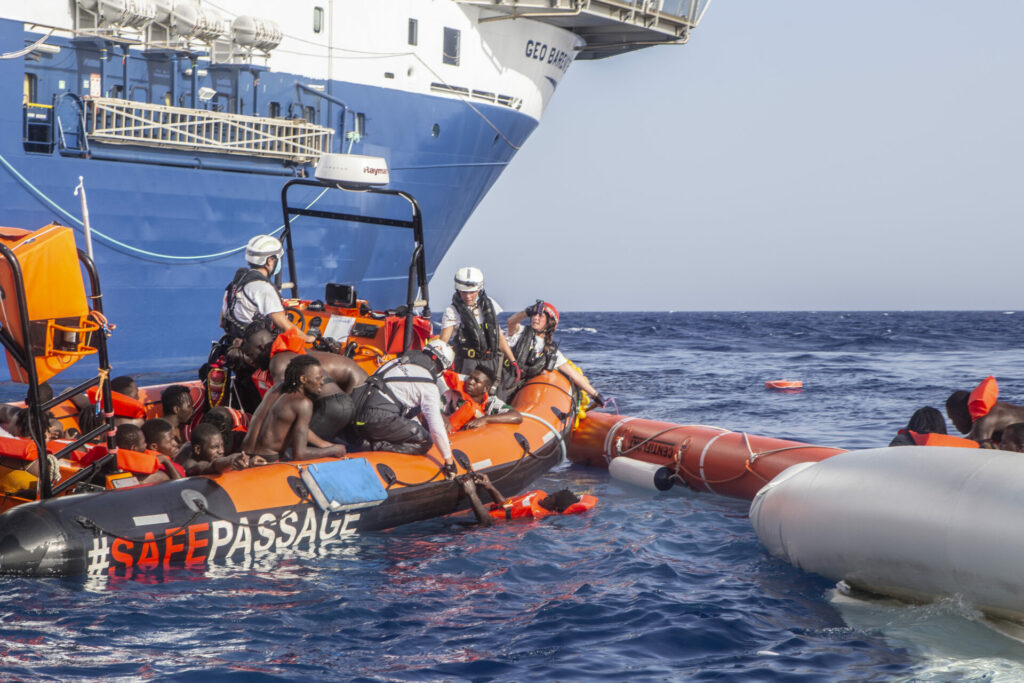The EU has finally reached an agreement on a new migration management system. Whilst many hailed it a historic agreement, others condemned it as playing into the hands of right-wing movements.
With the 2015 migration crisis highlighting the need for a stronger migration policy, negotiations dragged on for years and were often held up by political in-fighting and finger-pointing. Yet on Thursday evening, EU Member States reached an agreement on its flagship Asylum and Migration Pact aimed at better managing the influx of people seeking protection and better "spread the load."
The final deal, as expected, includes a new procedure at the external borders to return rejected asylum seekers more quickly. This should result in those not entitled to asylum being repatriated swiftly while those who are entitled would be inserted into the "revamped, streamlined" European asylum procedure.
While the first country of entry would most often be responsible, as was the case under the previous Dublin Procedure, a solidarity mechanism has been devised to relieve the 'frontline states', currently Cyprus, Greece, Italy, Malta and Spain.
The other EU countries will have to take over a certain number of asylum seekers, or put down a sum of money per refused relocation in their place, hence the principle of compulsory but "flexible" solidarity.
Member States also agreed on a distribution key for the number of migrants they take over. For Belgium, it is 3.19%. In the case of 30,000 relocations (though that figure is revised every year), it would be 957 people converted.
Humans and numbers
Figures, amounts and targets were the key talking point during the EU’s Justice and Home Affairs Council (JHA) on Thursday. It was agreed that 120,000 asylum seekers should be screened at the external borders every year and at least 30,000 places should be provided for that purpose.
Also, 30,000 asylum seekers should be spread across Europe each year on the basis of the solidarity principle. However, as with asylum capacity, this is a target that will be updated each year, in correspondence of migration flows. Countries that want to put money on the table instead of taking in migrants will have to pay €20,000 per person to do so.
Italy, who argues it has the biggest burden in dealing with migration flows, asked for more room for manoeuvre to return migrants to so-called "safe third countries," many of which aren't safe at all. It finally agreed to the compromise proposal, which guaranteed that the country would receive sufficient funds to carry out its tasks and is also allowed to make bilateral agreements with third countries.
As was predicted, Hungary and Poland were the only countries to vote against the Pact, while Malta, Bulgaria, Slovakia, Lithuania and the Czech Republic abstained. The agreement was thus not unanimously approved, but it did find the necessary qualified majority to get the two regulations approved.
A welcome change?
The political group The Left in the European Parliament was quick to condemn the deal, arguing that it is another attack on the right to asylum.
"Doubling down on years of failure and errors and caving into far-right extremists, this dirty deal seeks to further weaken the few remaining protections for basic rights," the party said following the decision.
Germany's largest pro-immigration advocacy organisation Pro Asyl, meanwhile, has argued that "even families with children will end up in detention camps behind barbed wire at Europe's borders in the future."
However, Belgian State Secretary for Asylum and Migration Nicole de Moor, who had been at the forefront of calling for these changes, spoke of overcoming "a very big hurdle" while adding that the deal shows it is possible for the EU to reach an agreement.
"All Member States have an interest in good and strict external border controls. Migrants from countries with low recognition rates enter faster border procedures. They get quick answers so that returns can also be organised quickly," she said.
Related News
- Pushbacks of migrants: Will Greece or EU agency investigate what went wrong?
- Police punches, firing bullets: Report confirms degrading treatment of asylum seekers
Belgian right-wing MP Theo Francken (N-VA), who previously held de Moor's position, is less optimistic.
He also does not believe that the EU will succeed in organising rapid screening and return in frontline states. "Those centres inside the European border will inevitably fill up in the short-term and turn into Europe's waiting room. Organising a mass return for all those people who are rejected is therefore almost impossible," he said.
Member States still need to reach agreements with the European Parliament on the two legal texts, negotiations which may only be able to take place during the Belgian EU presidency, in the first half of 2024, and is expected to be another complex and heated round of debates.

